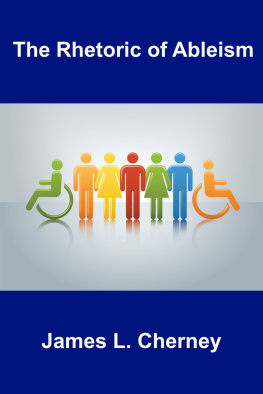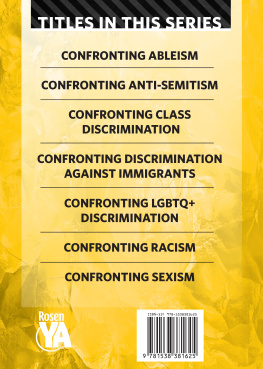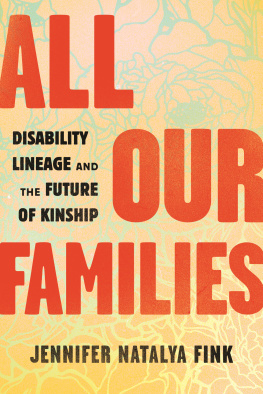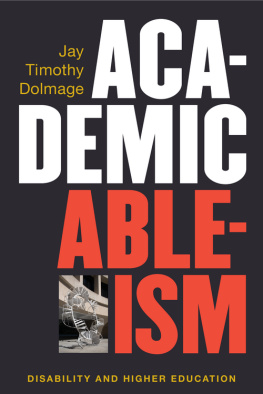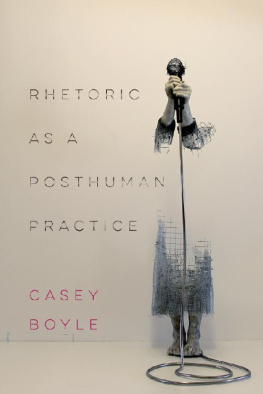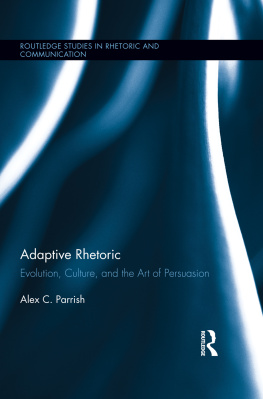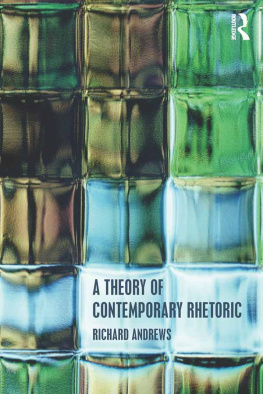James L. Cherney
Abstract: This essay argues that rhetoric is both the means by which ableist culture perpetuates itself and the basis of successful strategies for challenging its practices. Public demonstrations, countercultural performances, autobiography, transformative histories, and critiques of ableist films and novels all apply rhetorical solutions to the problem of ableism. The study employs Kenneth Burke's theory of identification and Stuart Hall's configuration of ideology to uncover those commonplace "languages of practical thought" that generate and sustain ableist perspectives and ideas. Focusing on the rhetoric of ableism at the level of the warrants used to interpret disability, this article closely examines the way Aristotle's Generation of Animals relies on the equivocation "normal is natural."
As Disability Studies continues its exploration of disability in society, scholars have paid growing attention to the rhetoric of disability. This scholarship approaches the subject from different angles, but it generally works with similar premises including the position that rhetoric can shape the way disability is understood and (in)forms its political implications. These studies range from considering how rhetoric crafts disability to examining how ideas of disability impact theories of rhetoric. Brenda Jo Brueggemann explores how rhetoric constructs the disability of deafness, revealing how Hearing culture oppresses Deaf culture. I seek to build upon these authors' valuable work by continuing to examine rhetoric but turning to a related yet different focus: I analyze ableism instead of disability. While disability and ableism clearly relate, I consider attending to the latter to be similar to studying racism instead of race. Neither project makes sense without the other, and arguably studying disability has greater potential for promoting awareness and emancipatory politics, but studying ableism promises unique results such as identifying the identical mechanisms that propagate different types of discrimination.
In this essay I analyze ableism as a rhetorical problem for three reasons. First, ableist culture sustains and perpetuates itself via rhetoric; the ways of interpreting disability and assumptions about bodies that produce ableism are learned. The previous generation teaches it to the next and cultures spread it to each other through modes of intercultural exchange. Adopting a rhetorical perspective to the problem of ableism thus exposes the social systems that keep it alive. This informs my second reason for viewing ableism as rhetoric, as revealing how it thrives suggests ways of curtailing its growth and promoting its demise. Many of the strategies already adopted by disability rights activists to confront ableism explicitly or implicitly address it as rhetoric. Public demonstrations, countercultural performances, autobiography, transformative histories of disability and disabling practices, and critiques of ableist films and novels all apply rhetorical solutions to the problem. Identifying ableism as rhetoric and exploring its systems dynamic reveals how these corrective practices work. We can use such information to refine the successful techniques, reinvent those that fail, and realize new tactics. Third, I contend that any means of challenging ableism must eventually encounter its rhetorical power. As I explain below, ableism is that most insidious form of rhetoric that has become reified and so widely accepted as common sense that it denies its own rhetoricityit "goes without saying." To fully address it we must name its presence, for cultural assumptions accepted uncritically adopt the mantle of "simple truth" and become extremely difficult to rebut. As the neologism "ableism" itself testifies, we need new words to reveal the places it resides and new language to describe how it feeds. Without doing so, ableist ways of thinking and interpreting will operate as the context for making sense of any acts challenging discrimination, which undermines their impact, reduces their symbolic potential, and can even transform them into superficial measures that give the appearance of change yet elide a recalcitrant ableist system.
In the next sections I sketch an approach to investigating ableist rhetoric. The first develops a theoretical matrix for the project, articulating relationships between ideology and rhetoric, and engaging the problem of revealing a rhetoric that denies its own existence. The second expands on this foundation by developing a concept I label "rhetorical norms" as a construct for analyzing the inner workings of ableist systems of interpretation. The third section closely examines the rhetoric of Aristotle's Generation of Animals to demonstrate the ways an ableist rhetorical norm can operate. I conclude by suggesting how a strategy of crafting new wordsthe practice of neologismcan challenge ableism, and consider implications of this study in the context of disability rights and activist politics working to secure them.
Ideology and Rhetoric: Revealing Ableist Interpretation
Stuart Hall defines ideology as "the mental frameworksthe languages, the concepts, categories, imagery of thought, and systems of representationwhich different classes and social groups deploy in order to make sense of, define, figure out and render intelligible the way society works." Hall's articulation of ideology is an excellent construct for understanding ableism. Ableism dominates the thinking of our society as a whole and it clearly operates as a discourse of power and domination. Furthermore, ableism becomes most visible as a "mental framework" transmitted through rhetorical devices including language, imagery, and systems of representation.
Every orientation, perspective, and ideology has its basis somewhere; we are taught to understand the world as we do. In other words, we learn meaningit does not arise naturally from objects or relationships. In Hall's words, "there is no one, final, absolute meaningno ultimate signified, only the endlessly sliding chain of signification."
From the perspective of ableism as a framework of interpretation, we identify its dimensions by examining the linguistic codes and rhetorical assumptions that govern sense making. As Burke put it, "We discern situational patterns by means of the particular vocabulary of the cultural group into which we are born. Our minds, as linguistic products, are composed of concepts (verbally molded) which select certain relationships as meaningful." In other words, meaning exists primarily as a function of language rather than a natural or necessary consequent of material objects or bodies. Our comprehension of reality itself arises from our perspective, so "different frameworks of interpretation will lead to different conclusions as to what reality is."
Complicating the simple materiality of things does not necessarily entail rejecting material existence: things can exist as simultaneously material and rhetorical constructs. Material might be experienced "directly" by a body, but whatand howthis material "is" depends on filters that shape perception. Repeated stress on a knee may promote swelling, strain ligaments, and alter the shape of cartilage. Depending on the way it is described, this might be understood as "injury," expected "wear and tear," or "a natural consequence of running long distances." If the condition causes pain, it might be considered "trauma," a "danger signal," or the simple "cost that one pays for extraordinary performance." To say and understand what happened we use "stress," "swelling," "ligaments," and "cartilage" as concepts that we have created to relate to the experience in particular ways. Substitute "stress" with "strenuous activity," "work," "play," or "abuse" and the condition changes yet its materiality remains the same. Exchange "swelling," with "inflammation," "being sore," "recovery mechanisms," or "cushioning," and this alters the proscribed treatments. Replace "ligaments" and "cartilage" with "tissues," "sinews," "flesh," or "well designed structural components" and the anatomy itself becomes something else. The event could not be explained at all if the words were lost or it involved something unnamed. The context in which observers place something and the implications of the words used to make it meaningful rhetorically construct the experience. We

